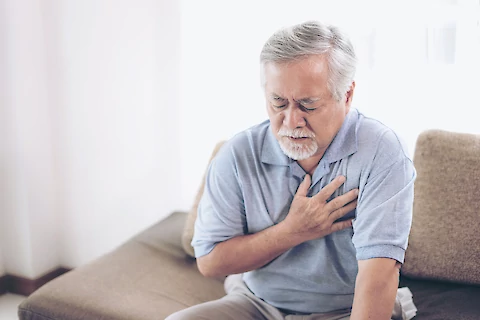
American Heart Month is an opportune time to explore vital health topics that directly concern our senior citizens, particularly the risk of heart attacks. Recognizing these risks and understanding the symptoms of heart attacks can significantly increase the chances of prompt, effective treatment and successful recovery. The symptoms of a heart attack can be very different for men and women. We've created this guide for senior men to help them identify mild and moderate heart attack symptoms to determine if they might have experienced a heart attack. Remember that in matters of the heart, awareness is not just power. It's a potential lifesaver.
What Is a Heart Attack?
Heart attacks, medically known as myocardial infarctions, occur when the blood supplying oxygen to the heart gets blocked, usually by a blood clot. A common misconception is that heart attacks are always severe, characterized by intense pain and sudden collapse. However, the reality is that heart attacks can range from mild to moderate, with symptoms varying widely.
Know the Symptoms of Heart Attacks
Mild heart attacks, often termed 'silent heart attacks,' might not cause any apparent symptoms and could potentially go unnoticed. They may cause mild discomfort in the chest or upper body, or you may experience unusual fatigue.
In contrast, a moderate heart attack will likely present more noticeable symptoms, including pronounced discomfort in the chest, shortness of breath, and potentially even pain spreading to the shoulders, neck, or arms. These symptoms present a stronger signal that something significant may be happening with your heart.
Typical symptoms of a heart attack include:
- Chest pain or discomfort
- Shortness of breath
- Dizziness
- Sweating
- Nausea
What to Do if You Suspect a Heart Attack
If you suspect you're having a heart attack, the immediate step is to call 911 or your local emergency line. Quick action is vital to minimizing damage and improving the chances of recovery.
However, ensuring your health isn't only about immediate action. If you realize a few days after the onset of symptoms that you may have had a heart attack, don't hesitate to seek medical attention, even if the symptoms have subsided. Consult a healthcare professional to discuss your symptoms and possibly undergo tests to determine whether a heart attack occurred.
Awareness Is the First Line of Defense Against Heart Attacks
Understanding and recognizing the signs of a heart attack are crucial, particularly for senior men. Paying attention to your body and being mindful of any changes or unusual symptoms can be your first line of defense in maintaining your heart health. Never underestimate a symptom, no matter how mild it may seem.
If you're living in the areas of Princeton, Princeton Junction, Hopewell, Lawrenceville, or Pennington, know that help is close at hand. At Senior Helpers Princeton, we are committed to supporting senior citizens in maintaining their health and well-being. Don't hesitate to contact us if you need support or assistance. Your health is our priority. Remember, in matters of heart health, every moment counts.